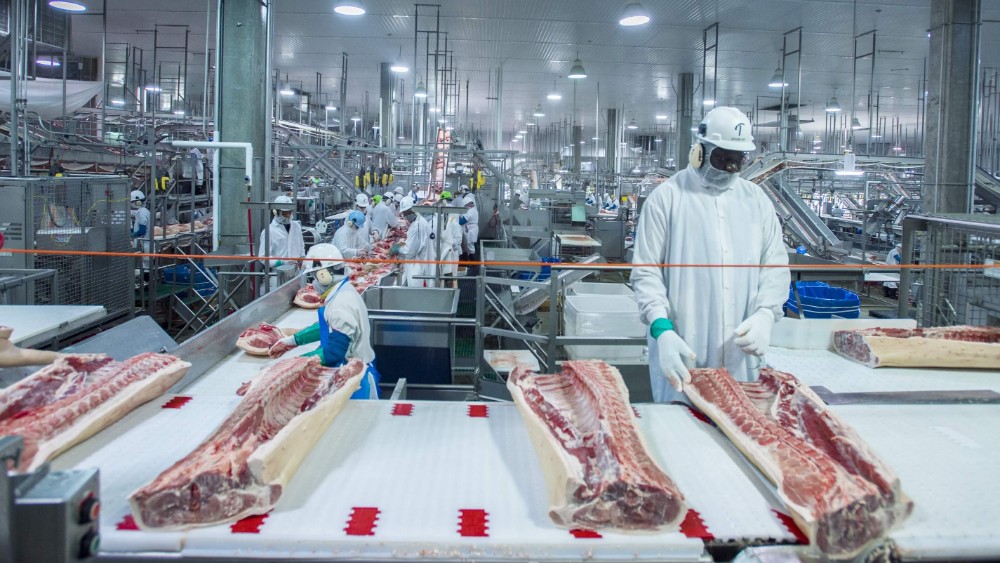John Grant—president of the United Food and Commercial Workers (UFCW) Local 77 labor union, which represents 2,000 food and meat processing plant workers—has spoken out against meat companies amid the coronavirus crisis.
Last month, it was reported that nearly half of U.S. coronavirus hotspots were linked to slaughterhouses.
Grant has compared meat companies sending their employees back to work to scenes in the 1975 thriller “Jaws.”
In the film, mayors send tourists to the beach and pretend like nothing is going on.
“There’s a shark in the water and we know that it’s deadly, it’s time to get people out and find out what’s going on,” Grant recently told MSNBC.
The UFCW is calling for meat companies to take three steps: mandatory testing of all workers, location of the virus spread in the plant, and compliance guidance with the California Division of Occupational Safety and Health.
Grant continued, “this would not be allowed anywhere else.”
He explained that if an illness was linked to toxic waste, those plants would likely be shut down.
“Why isn’t this happening with worker’s lives?” he questioned. “A ham sandwich is not that valuable.”
‘This Should Not Have Happened’
The labor leader personally called the families of the union’s members in Los Angeles who have died from COVID-19.
“Their message over and over again is this should not have happened,” he said. “And what can we do to make sure nobody else dies and their families deprived of a loved one like that?”
Senator Tammy Baldwin [D-WI] recently called for meat companies to be more transparent about conditions in slaughterhouses.
In a letter sent to the CEOs of major meat companies—including JBS, Smithfields, and Tyson Foods—Baldwin blamed “unwillingness” to implement safety precautions for the outbreaks.
In April, President Donald Trump signed an executive order forcing plants to remain open or reopen despite the coronavirus outbreak. Following the order, a number of workers expressed concern for their safety.
One of Tyson Food’s employees told CNN Business: “All in all, it can be a good thing if done right. But my faith in this administration has never been strong and is nonexistent currently.”
More than 10,000 workers, many of them Latin American, now have COVID-19. Many Latin American workers have experienced discrimination as a result of the situation.
Domingo Garcia, the national president of the League of United Latin American Citizens, told the Guardian: “We’ve received reports that some workers at a plant were turned away from grocery stores and not allowed in because they were presumed to have the coronavirus because they worked at the local meatpacking plant.”


